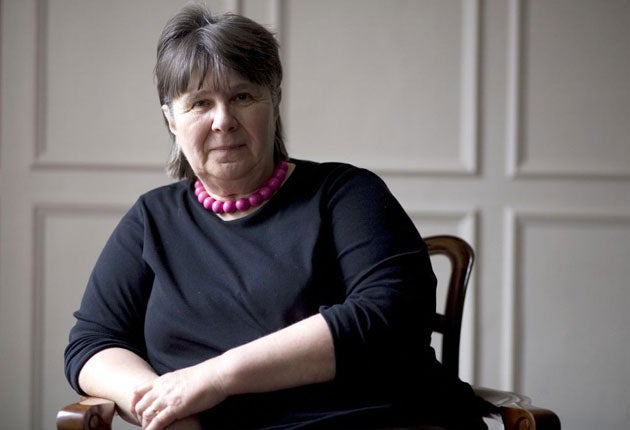E-book prize: A new chapter or a damaging novelty?
The Booker judges are assessing this year's entries on e-readers – but that may mean losing a little literary magic, says Arifa Akbar

Your support helps us to tell the story
From reproductive rights to climate change to Big Tech, The Independent is on the ground when the story is developing. Whether it's investigating the financials of Elon Musk's pro-Trump PAC or producing our latest documentary, 'The A Word', which shines a light on the American women fighting for reproductive rights, we know how important it is to parse out the facts from the messaging.
At such a critical moment in US history, we need reporters on the ground. Your donation allows us to keep sending journalists to speak to both sides of the story.
The Independent is trusted by Americans across the entire political spectrum. And unlike many other quality news outlets, we choose not to lock Americans out of our reporting and analysis with paywalls. We believe quality journalism should be available to everyone, paid for by those who can afford it.
Your support makes all the difference.The load for literary-prize judges has never been light, and they have never hesitated to remind us of the fact. There have been confessions of retiring to the bath with a pile of books for the night and stoic stories of lugging suitcases filled with long-listed novels through airport lounges, while one judge spoke of simultaneously rapid-reading and breast-feeding her newborn.
So when Susan Hill, the author and Man Booker prize judge, Tweeted the news that she and her fellow judges would this week begin receiving this year's 130 to 140 submissions on an e-reader, you might have said it was about time that the Booker finally plugged into the electronic age.
After all, its judges are nearly always high-profile academics, broadcasters or authors, all of whom are invariably reading on-the-go. This year's Kindle offer by the prize administrators allows them to cut through their immense reading load by whipping out their machines in spare moments wherever they go.
And yet, might something be lost in the Booker's endorsement of e-reading? Will the prize's chair, Stella Rimington, for example, feel the same wanton pleasure while lying back in her bath with an e-reader bobbing above the bubbles instead of a slightly soggy physical copy? Will she read the book she has downloaded in the same way she would a book with a dust jacket, pages and spine?
Ion Trewin, literary director of the Booker prizes, who had the idea to send out Kindles along with a physical copy of the submitted books, does not dispute that the e-read will be different from a paper one.
"I want to help the judges who have an awful lot to read. If it helps that they want to read the entries electronically, we should make that possible for them. I will be very interested once the judges start using them, whether they like them or don't like them," says Trewin.
Perhaps it is not a matter of like or dislike in the case of Booker judges. While the option to read in both forms is a useful one, a judge on an e-reader might not be able to do the job as effectively – the pulling out of quotes, the under-linings, crosses or ticks along the margins, the folding over of a particular page that may be useful practice for judges.
Trewin insists that, on a more general level beyond Booker judging, it is not a case of the new replacing the old: "Reading on a Kindle is a different sort of reading. If you have a book printed on paper, there's a texture aspect as well. I have always said that the Kindle is not going to replace the book."
His point about the look and feel of the book impacting on the reading experience is an important one. There is a romance in the book that an e-read will never acquire. Some feel that breaking the spines of new books, alphabetising them on shelves and enjoying the aesthetics of the cover are central to their love of reading. Indeed, next week, a BBC4 programme, The Beauty of Books, will examine the allure of books as precious, treasured artefacts.
One former Booker judge reflects how he gave many of his booklist away, but also kept a favourite few on his shelf. That physical memory of a much-loved book is cancelled out when a download is deleted to make way for another on an e-reader. The judges will receive their books in both forms this year, but there is a fear that the Booker's hailing of electronic reading might set the ground, in years to come, for an eventual replacement.
Book-prize administrators are not leading the way in reading habits. They are responding to the sea-change which has seen Amazon sell more books for its Kindle device in America than paperbacks in the last three months of 2010. E-readers are being spawned every day and only a Luddite would suggest that Kindles are detrimental to literary culture: it is a great thing to have people reading books – in whatever form. Yet a convenient read does not necessarily equate to a better, more thoughtful one, as this year's judges may discover.
Join our commenting forum
Join thought-provoking conversations, follow other Independent readers and see their replies
Comments